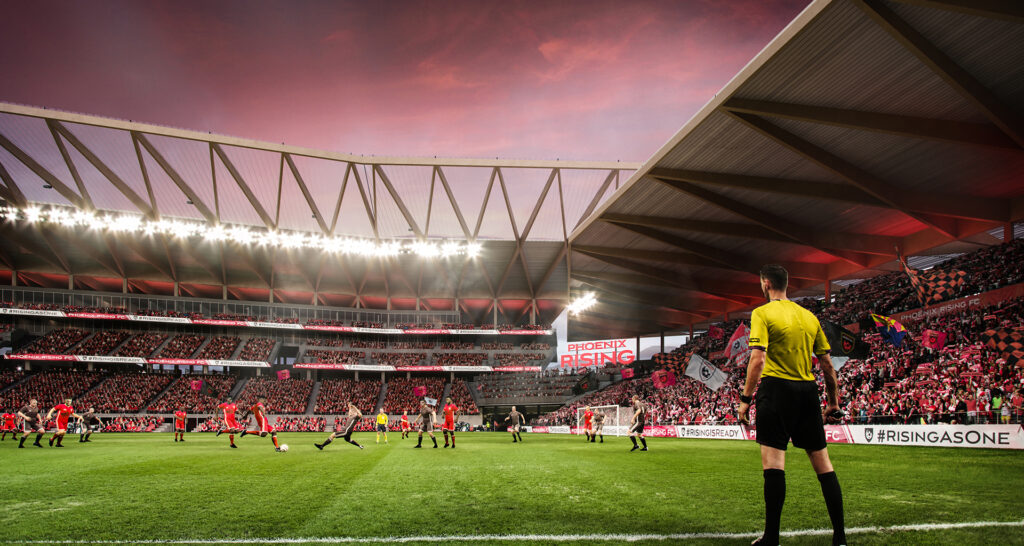Manchester United: Business Case Study in Football
Football is not only a sport but also a multi-billion-dollar industry that encompasses various aspects of business management. One of the most successful and globally recognized football clubs is Manchester United. With a rich history and a massive fan base, Manchester United serves as an intriguing case study for those interested in the business side of football. In this article, we will delve into the key elements that contribute to Manchester United’s success and explore the various business strategies employed by the club.
1. Branding and Global Reach
Manchester United has successfully established itself as a powerful brand worldwide. The club’s iconic red jersey, the Manchester United logo, and the famous “Red Devils” nickname have become synonymous with success, passion, and tradition. The club’s global reach is remarkable, with a massive fan base spread across different continents. This extensive fan base allows Manchester United to tap into various revenue streams, such as merchandise sales, sponsorships, and broadcasting rights.
2. Sponsorship Deals and Partnerships
Sponsorship deals play a crucial role in the financial success of modern football clubs, and Manchester United is no exception. The club has managed to secure lucrative partnerships with global brands such as Adidas, Chevrolet, and Aon. These sponsorship deals not only provide significant financial support but also enhance the club’s brand image and visibility. Manchester United’s ability to attract such high-profile sponsors is a testament to its global appeal and marketability.
3. Stadium and Matchday Revenue
Old Trafford, Manchester United’s home stadium, is one of the most iconic football grounds in the world. With a seating capacity of over 74,000, the stadium generates substantial matchday revenue through ticket sales, hospitality packages, and concessions. Manchester United’s ability to consistently fill the stadium showcases the unwavering support of its passionate fan base and adds to the club’s financial stability.
4. Broadcasting Rights
Television broadcasting rights are a significant source of revenue for football clubs, and Manchester United has secured lucrative deals with various broadcasters. The club’s success on the pitch, combined with its global fan base, makes it an attractive proposition for broadcasters looking to capture a massive audience. These broadcasting deals not only provide financial rewards but also help increase the club’s exposure and maintain its global reach.
5. Youth Academy and Player Development
Manchester United’s success is not solely reliant on financial strategies but also on its commitment to nurturing young talent. The club’s renowned youth academy has produced numerous world-class players over the years, including the likes of Ryan Giggs, Paul Scholes, and David Beckham. This emphasis on player development not only strengthens the team but also provides Manchester United with a valuable asset in terms of player transfers and potential revenue generation.
6. Digital Engagement and Social Media
In today’s digital age, football clubs need to engage with fans beyond the traditional matchday experience. Manchester United has embraced digital platforms and has a strong presence on social media channels. The club’s official website, mobile applications, and social media accounts provide fans with exclusive content, merchandise, and opportunities to interact with the club. This digital engagement helps foster a sense of community and loyalty among Manchester United’s global fan base.
7. Commercial Partnerships and Merchandising
Manchester United’s commercial partnerships extend beyond traditional sponsorships. The club has collaborated with various brands to create exclusive merchandise and fashion collections. These collaborations not only generate additional revenue but also help the club tap into different markets and demographics. Manchester United’s ability to consistently innovate and expand its merchandise offerings keeps the brand fresh and appealing to fans worldwide.
Conclusion
Manchester United serves as an excellent business case study in the football industry. The club’s success can be attributed to a combination of strategic branding, global reach, sponsorship deals, stadium revenue, broadcasting rights, player development, digital engagement, and commercial partnerships. By analyzing Manchester United’s business strategies, aspiring professionals in the football industry can gain valuable insights into the key factors that contribute to sustained success in this competitive field.
Key Takeaways:
- Manchester United’s success is driven by strategic branding, global reach, and extensive sponsorship deals with high-profile brands.
- The club’s matchday revenue, generated through ticket sales and hospitality packages, contributes to its financial stability.
- Securing lucrative broadcasting rights helps Manchester United maintain its global exposure and reach a massive audience.
- The club’s commitment to player development through its renowned youth academy strengthens the team and provides valuable assets for player transfers.
- Digital engagement and social media play a vital role in fostering a sense of community and loyalty among Manchester United’s global fan base.
- Commercial partnerships and innovative merchandising efforts allow the club to tap into different markets and demographics.
To excel in the football industry, it is essential to have a solid understanding of the business side of the sport. Consider enrolling in the NYU Fundamentals of Global Sports Management offered by Yellowbrick. This online course and certificate program provide valuable knowledge and insights into the intricacies of the football business, equipping you with the skills needed for a successful career in this dynamic field.




